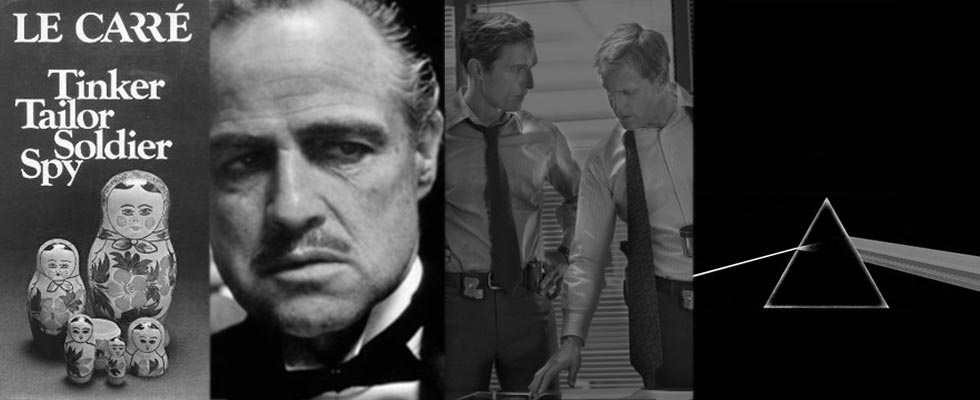
Denzel Washington is back on screens in the second installment of “The Equalizer,” taking care of business and questionable foes the way they should be handled; With singular intent and brute force.
If one listens hard enough, they can hear the screams and denunciations from the cabal of the politically correct, those who argue hand-to-hand combat and violence are never an answer. For the most part this is true. Still, there are times when unchecked, brutal behavior requires a response beyond cowering, whining, and pleading to be left alone while someone so inclined takes care of life’s nasty bits of business.
EQ2 is only a movie, but Robert McCall’s brand of decisive action bears discussion. Why? Because the best essence of the American Male has been under attack for years.
There are plenty of reasons and many to blame, starting most obviously with overindulgent parents. Lacking school curriculums don’t help, nor does the continual erosion of general youth sports and the loss of unsupervised, freewheeling play. (Not to be mistaken for the pathetic and expensive children’s leagues which demand everyone gets a chance, rewarding trophies to all teams, including last place finishers.)
Most destructive is the push of social media, television, movies and music, which put a premium on the homogenization of the species, while grinding the edges off true masculinity. We are left with passive males, celebrated for effeminism over strength, complaining over contemplation, and an ability blend in while not presenting a threat.
To be fair, men had it coming. Those who, over the past 50 years, used their chromosomes as a license to bully, humiliate, gaslight, and generally act like overindulged fools and thugs. Pay disparities, outdated familial roles, frat mentality and generally boorish behavior, (man caves and strip clubs for starters) primed those who’d been sucking it up for years to start playing offense. What’s it’s spawned is a deserved reckoning. From the beginnings of the Oprah Effect one can draw a straight line to the pulsing force of MeToo. The resulting comeuppance has been mostly justified. The war against deviants and abusers, as well as their archaic and enabling institutions, has by design lacked grace and tact, opting instead for avenging full-frontal assault and public humiliation.
But it hasn’t all been quid pro quo. Seismic shifts have unintended and destructive side effects, fragging bystanders far beyond those who come up deserving. In the shadows, a more subtle and insidious psychological war has enlisted mothers, sisters, teachers and others to chip away at young male children. Many don’t even realize they are complicit, blindly following the examples of what they see and hear, mostly on social media and talk shows. The result has been an assault on the ideal of what it means to be a man. Sadly it has taken a massive toll. It’s hard to tell the difference between men and women under the age of 40 these days.
So forgive us for appreciating a fictional, burned-out assassin, working through his demons by settling scores for those who can’t settle their own. There should be nobility in navigating such a dark path, even if it takes us outside the diminishing boundaries of good taste, and into the realm of outcast status.
Comment

It would be lazy to say that Garry Shandling was more than just a comedian, a statement delving into the realm of predictability, and one that would have annoyed the man who never found comfort in the banality of ambling along previously charted paths. In fact, he couldn’t find comfort in much of anything, a predominant thread running through all four hours of the recent HBO miniseries, “The Zen Of Garry Shandling.”
Director Judd Apatow has had a profitable career creating movies about wimpy, whining, emotionally vacant men, and their never-ending failure to relate to stronger, more together women. These flicks, (always about 40 minutes too long,) may not be our first choice on a rainy Friday night, but they have connected with younger generations who can’t seem to figure out why men and women are, and should be, two completely different species. Aside from his slacking and sunken-chested blueprint for the modern male, he does come across as a decent sort. Which is likely why he was drawn to and became a confidant of the reticent comedian early in his own journey. Apatow’s documentary deserves to be viewed as a triumph over the silliness of his previous low-rent comedies. It is a stunning work of deep-rooted compassion, full of sharp edges and contradictions. Much like the subject himself.
Apatow lines up a full bench of big names and former associates to talk around and about the mystery that was Garry Shandling, whose prickly personality can’t diminish the reverence conveyed, even from those he warred with or sided against. It is striking that someone with so many doubts, insecurities, and at times, self-hatred, somehow found a way to offer meaningful support to those lucky enough to be in his circle. Or that someone who spent his entire life silently mourning the childhood loss of his brother, could take on the mantle of a mentoring older sibling, even one who himself was so emotionally closed and lonely.
What insufficient joy he could create and briefly sustain was always tied to the work, not just the performance, but the work – what it required to get oneself stage-ready. Shandling had a refined focus, and in concert with the ceaseless self-deprecation and whining lilt, had no trouble pulling everyone into his corner. No matter how bad we might have it, Garry had it worse, or at least the Garry who entertained us. The development of that persona was certainly organic, but for its master, turned into a crutch far more debilitating than inspiring.
Shandling was the Jewish son of a Chicago store owner who mostly grew up in Arizona, where his parents relocated in hopes of alleviating older brother Barry’s Cystic Fibrosis. His brother died when Garry was 10, and his most vivid memory of that time was of his parents refusing to allow him attend the funeral. This after not letting him sit with his bedridden brother as he became weaker. The result would be 55 years of guilt and doubt survivor Garry could never rally past, or rarely talk about, with anyone. His mother, who should have been there for him, shut down any talk of his brother for the rest of her life.
Even for those who knew him only through the brilliant and extraordinary work he put before us, the back story and how it came to mold a sad and creative young boy begins to make a certain kind of sense. Within the weighted burden of non-grieved loss, Shandling tried for years to emotionally course-correct, spending his adult life seeking respite from the constant battle with his own mental shade. He was a high functioning depressive, who found guidance in Buddhism, and later a physically spiritual outlet through boxing. Shandling wasn’t a great or even gifted athlete, but he loved sports and was a decent enough jock, (much better than anyone knew,) holding weekly basketball games at his house for friends and co-workers. Through sports and especially in the ring, he expanded his understanding of authentic moments, coming to appreciate how athletics can clear the cluttering mental debris, and if we’re lucky, offer a bit of peace.
Though nothing in this tribute is more poignant than the hand-written journals Shandling obsessed over. Loaded with thoughts, in-process jokes, theories and existential philosophy, these hundreds of yellow legal pads proved to be his only reliable coping mechanism. Two years after his death, they are the most reliable glimpses into the inner-workings of a tortured, thinking-man’s guy.
At the same time, Apatow pulls no punches, revealing the petty, vindictive, ruthless and perpetually fearful side of his friend’s genius. Shandling was forever at war with himself over what success was, what it looked like, and what it said about him. As a creative innovator, he of course needed the adulation and a showcase for his talent. His standup was so flawless he became a Carson favorite and for a time, a permanent guest host. He created two comedic standout television shows. The later effort, “The Larry Sanders Show,” poised him playing a fictional late night host surrounded by real celebrities playing themselves. Sanders might arguably be, along with “The Wire,” the very best we have ever seen on the small screen. Much like “The Wire,” it was too inside it’s own story for most to relate to or bother to try and understand. In these shows, everyone had grand agendas, and no one came off well. On the rare occasions sentimentality threatened to invade narrative, it was righteously and brutally snuffed out.
Shandling understood that in his business, show business, better nature and humanity barely existed, and if it somehow they did, they wouldn’t take long to transform to the vulgar, materialistic and shitty. He accepted early on that he would be a breathing and viable part of that world, and would never apologize for needing it. Like his stage persona, he was a mess with women and relationships. He could lash out as easily as he could be hurt, which made him human, and not unlike most everyone else. No better or worse.
We are however, grateful to have been witness to what we were given. Shandling never allowed himself to veg, or mentally slouch. He ceased production on all projects when when he felt it was in danger of slipping. None hit harder than “Sanders,” which many of us foolishly hoped would continue for years. As he scribbled so often in his journals, he remained most committed to the work behind the product.
When in doubt, escape the noise and take comfort in the work. That which is decent will always evolve, and sustain, from the work.
Comment

There is a ceaseless complaint from numerous insiders that movies continue to get progressively worse. Overall this is true, but to believe this is a recent malaise is a myth. Bad Cinema has been an embarrassment for more than 20 years, when Hollywood ran out of ideas and pivoted, hoisting massive budgets on comics while bowing to China and other overseas markets. Beyond a few exceptional art house films, the Chinese, like what remains of our own movie-going public, are more than happy to gobble up the heroes in ball-destroying tights, transforming machines gone wild, and the ludicrous double “F” car chase genres. All of which translate seamlessly, if not artistically, to the diminutive screens of an IPhone or tablet.
This is the non-discerning viewer the industry has happily served since the Millennium, and despite cries of poverty, it hasn’t gone broke doing it. The dark suits hidden behind tinted windows on studio lots will quietly blame the scripts, which like the movies they spawn, aren’t what THEY used to be either. This should be obvious to anyone paying attention, or with a BPM above 35.
In the 90’s, narcissism became an emotional accessory, revered by talk show hosts sitting before adoring plebes to convince them (read that Brainwash,) into accepting they were perfect as is. The need and ability to strive took on a negative interpretation. If you weren’t enabling, you weren’t helpful.
Hollywood took this as gospel, got fat and lazy, and began emphasizing and developing comic books, graphic novels, demented children’s fare and dopey, sexually confused comedies. In other words, flicks that were easy, cheap, and didn’t require moral or emotional subtlety. The big screens were also losing a great deal of behind-the-camera talent to television, where writers and show runners could stretch a narrative over 8-10 episodes, sometimes ponderously so.
Once entertainment hit phones full scale, and apps took center stage, it was game over.
In terms of narrative and craft, technology has led to a predetermination of genius. Younger industry types don’t feel the need to study, or even watch older movies. Because they’ve been coddled since inception, they step out of their Prius, IPhone in hand, convinced they can write, produce, and shoot a memorable film. (All they really need is a charger and an app for editing.) A peak at the sheer amount of so-called releases every weekend would tend to bolster the argument. Yes, they can cobble images together. But are they worth 18 bucks and two hours of our time?
The problem with the pampered generation of followers weaned on the message of those destructive talk show gurus and other snake-oil types, is they have never heard someone say no. True creativity is lost in the vast alternate reality of social media, internet bluster and outright laziness. Where are the curios and thoughtful directors, producers, and editors, who sweat blood and leave so much of themselves in the scene or page that doesn’t make the cut? They too have been corrupted, knowing that any seat at the table is better than none at all. No one wants to be the maverick pissing outside the tent. Not anymore. Remember that these are what pass for the creative class these days. And they can’t send their kids to private schools writing spec scripts.
Fear has become America’s dark equalizer, and great films have become one of the casualties. And that should matter, even if for most, it becomes yet another question of “why bother?”
Comment
